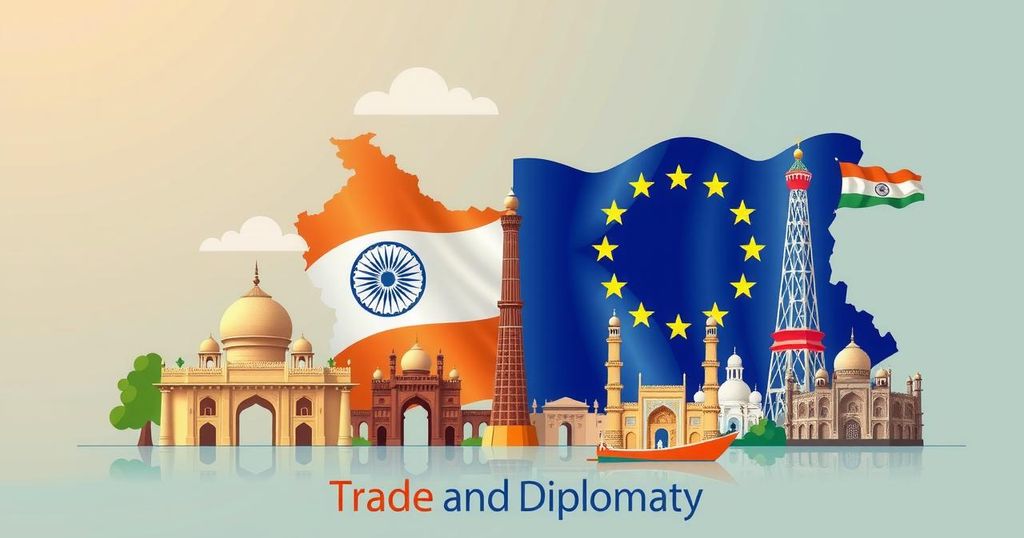Jaishankar Highlights India-EU FTA’s Role in Strengthening Strategic Ties

S. Jaishankar’s visit to Belgium and France focused on advancing the India-EU FTA, with both sides emphasizing its strategic importance. Urgent negotiations are fueled by global economic shifts and regional security issues. Discussions included enhancing parliamentary ties, and terrorism, with Jaishankar calling for reflection on historical grievances over Western support to Pakistan.
India’s External Affairs Minister, S. Jaishankar, underscored the potential of the India-European Union Free Trade Agreement (FTA) to enhance strategic ties as he began a week-long visit to Belgium and France. During his stop in Brussels, he convened with the European Trade Commissioner, Maroš Šefčovič, where both parties reviewed the ongoing FTA negotiations, asserting that this agreement could significantly advance their bilateral relationship.
Back in February, Indian Prime Minister Narendra Modi and European Commission President Ursula von der Leyen had set a deadline for the FTA’s completion by year-end, emphasizing urgency due to the current global economic volatility driven by the former Trump administration’s tariff policies. Jaishankar noted in a social media update, “Both sides recognized the progress in our discussions for a comprehensive, balanced, and meaningful FTA agreement between India and the EU.”
Emphasizing the strategic importance of the talks, Šefčovič commented on the intention to elevate the India-EU partnership through a “commercially meaningful trade agreement.” He looked forward to upcoming discussions with India’s Commerce Minister, Piyush Goyal, who has made multiple trips to Brussels this year to push forward negotiations.
Further demonstrating engagement with the EU, Jaishankar met Roberta Metsola, president of the European Parliament, during his time in Brussels. Their discussions were rooted in enhancing parliamentary ties and sharing values, particularly democracy and pluralism. Jaishankar expressed appreciation for her commitment to strengthening cooperation across trade, technology, and security sectors.
Jaishankar also conferred with Jozef Sikela, European Commissioner for International Partnerships, addressing crucial topics like connectivity, the India-Middle East-Europe Economic Corridor (IMEC), green shipping, and clean energy initiatives. They signed a trilateral cooperation agreement intended to aid the Global South, reflecting a shared commitment to fostering development through collaboration.
In a candid moment during an interview with Euractiv, Jaishankar addressed escalating tensions between India and Pakistan. Highlighting the issue of terrorism, he warned that these challenges could eventually impact Europe as well. He recounted historical context, reminding audiences of Osama bin Laden’s presence in Pakistan, linking it to broader terrorism concerns that extend beyond regional disputes.
Jaishankar pointed out a longstanding grievance regarding the West’s historical support for Pakistan after the 1947 invasion of Kashmir, arguing that such past actions complicate current dialogues on international principles. He believes it is justified to prompt these countries to reflect on their histories while discussing contemporary issues.
In summary, External Affairs Minister S. Jaishankar’s ongoing visit to Belgium and France marked significant strides in the India-EU FTA negotiations, which both parties believe could bolster their strategic partnership. The discussions encompassed various pressing issues from trade to terrorism, highlighting the intertwined future between India and Europe, underlining the urgency prompted by global economic changes and regional security concerns. Jaishankar’s rhetoric on historical grievances also stresses the complexity of international relations, especially concerning long-standing conflicts.
Original Source: www.hindustantimes.com








